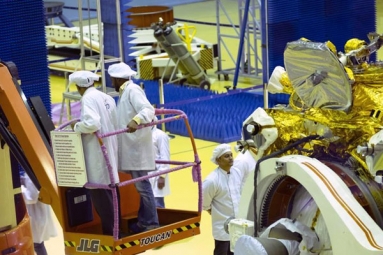
(Image source from: News18.com)
An Indian-American scientist Arul Chinnaiyan has been awarded $6.5 million to identify cancer biomarkers which may better diagnosis and aid develop new targeted therapies for the fatal disease.
The grant awarded by the United States National Cancer Institute.
Chinnaiyan, a professor at the University of Michigan, will provide long-term support to increase understanding of these markers to leverage targeted treatments for cancer.
National Cancer Institute has granted Chinnaiyan an 'Outstanding Investigator Award', which provides $ 6.5 million in funding over seven years, the University of Michigan said in a statement.
"The field of precision oncology continues to evolve with the overarching goal of providing cancer patients with enhanced diagnostic and prognostic capabilities and better treatments," said Chinnaiyan, a professor of Pathology at the University of Michigan Medical School.
"This grant will help us identify new biomarkers and understand their biological roles in cancer progression," Chinnaiyan said in a statement.
The award - approximately three times a traditional individual investigator award - is part of a grant programme named R35 developed by the National Cancer Institute.
It is designed with an intent to fund projects of unusual potential in cancer research over a prolonged period of seven years.
The aim is to provide established investigators long-term assist that gives them the flexibility to focus on ambitious and exceptional cancer research programmes.
According to a statement, the award is designed to support the very best researchers who have a track record of innovation and success.
Earlier in 2010, Chinnaiyan launched the Michigan Oncology Sequencing Program at the Rogel Cancer Center.
Mi-ONCOSEQ (Michigan Oncology Sequencing Center) is a research protocol for sequencing the DNA (Deoxyribonucleic Acid) and RNA (Ribonucleic acid) of metastatic cancers and normal tissue to identify alterations that could aid drive treatment.
Chinnaiyan's lab has also analyzed the global landscape of a portion of the genome that has not been previously well-explored - long non-coding RNAs.
This immense part of the human genome has been considered the dark matter since so little is known about it.
Emerging new evidence suggests that lncRNAs may play a role in cancer and that understanding them better could lead to new possible targets for improving cancer diagnosis, prognosis or treatment.
By Sowmya Sangam














